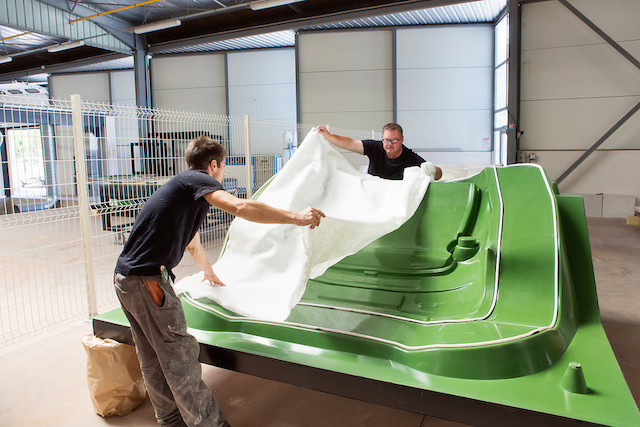The necessity for sustainability is everywhere, in every walk of life and in all industries. It can be hard to imagine how traditionally heavy, waste producing industries like car manufacturing can make much of an inroad into this, but it is truly amazing the progress that is being made, especially in Luxembourg which has a major automotive components industry. The amount of R&D and innovation taking place in the grand duchy is remarkable for such a small country. An example of an innovative automotive company taking advantage of this Luxembourg ecosystem is MDI (Motor Development International).
MDI was first set up in Luxembourg in 1991 bringing with it a new production concept for the automotive industry, “Small units spread across the globe enabling the required integration of functions and research.” “The idea is to create a network of small factories by selling production licences to partners to manufacture and sell MDI products in a given territory,” General manager Monique Bertho told Delano.
As such, MDI has an agreement with a licensed partner in Luxembourg and plans to open an MDI Air Pod 2.0 micro-factory in Luxembourg by 2019. However, its initial reason for setting up in the grand duchy was much more practical.
“Most of our shareholders at that time were living close by so it was a logical choice," explained Bertho. Since then they have no regrets. “We are pleased with this initial decision as Luxembourg is a very dynamic and open country, which is well situated in the heart of Europe with easy and fast links with other European countries.”
MDI also appreciates Luxembourg institutions' efforts to facilitate business, “There are extraordinary business possibilities initiated by the Chamber of Commerce. With this help, we plan to create the Air Pod 2.0 factory first and then install an MDI R&D centre in Luxembourg.”
When up and running the plan is to target the European fleet market first, Bertho explained, “as it will be easy for fleets to be equipped with air stations, which will allow them to easily refill the Air Pod tanks in two minutes.”
Sustainable vehicle appetite
However, is there really and appetite for sustainable vehicles such as the Air Pod 2.0? Apparently yes, as figures show. “For the duration of the development of the Air Pod 2.0 we did almost no communication, yet we registered 60,000 intentions of purchase on our website. So, I think that we can say there is a real appetite for such a sustainable vehicle.”
“Also, during the Hannover Messe and at the Arch Summit fairs, many urban professionals remarked on the need for such clean and affordable vehicles for their businesses due to the latest restrictions in certain towns, which are now prohibiting conventional vehicles.”
So, the appetite is there, but what exactly are the advantages of a car that runs on compressed air?
“Our philosophy is: “sustainability for all”,” said Bertho. “The trend for developing environmentally-friendly devices only makes sense if they are affordable to as many people as possible. When manufacturers are proposing electric cars beginning at €35,000 for the smallest ones, because of the price of the batteries, how many people can buy and use them? And I am not even talking of the totally unaffordable vehicles at more than €100,000. Who can buy and use these cars?”
For Bertho, there will be very little improvement in air pollution or the climate if no one can afford to drive sustainable cars. Whereas, “Our clean Urban AirPod 2.0 is inexpensive to buy and inexpensive and easy to use, which makes it accessible to any kind of user. Depending on the country, a refill could cost between two to three euros for 100 kilometres and it can be refilled in two minutes at an air-station. The other advantage is that its air tanks last for the life of the vehicle. No need to change them.”
According to Bertho, MDI’s goal is not just to produce environmentally-friendly cars, but to, “be as environment-friendly as possible in all our processes. We direct our efforts into finding the cleanest, simplest and most affordable ways of producing and using MDI devices from the conception and manufacturing, to the use and recycling of our products.”
